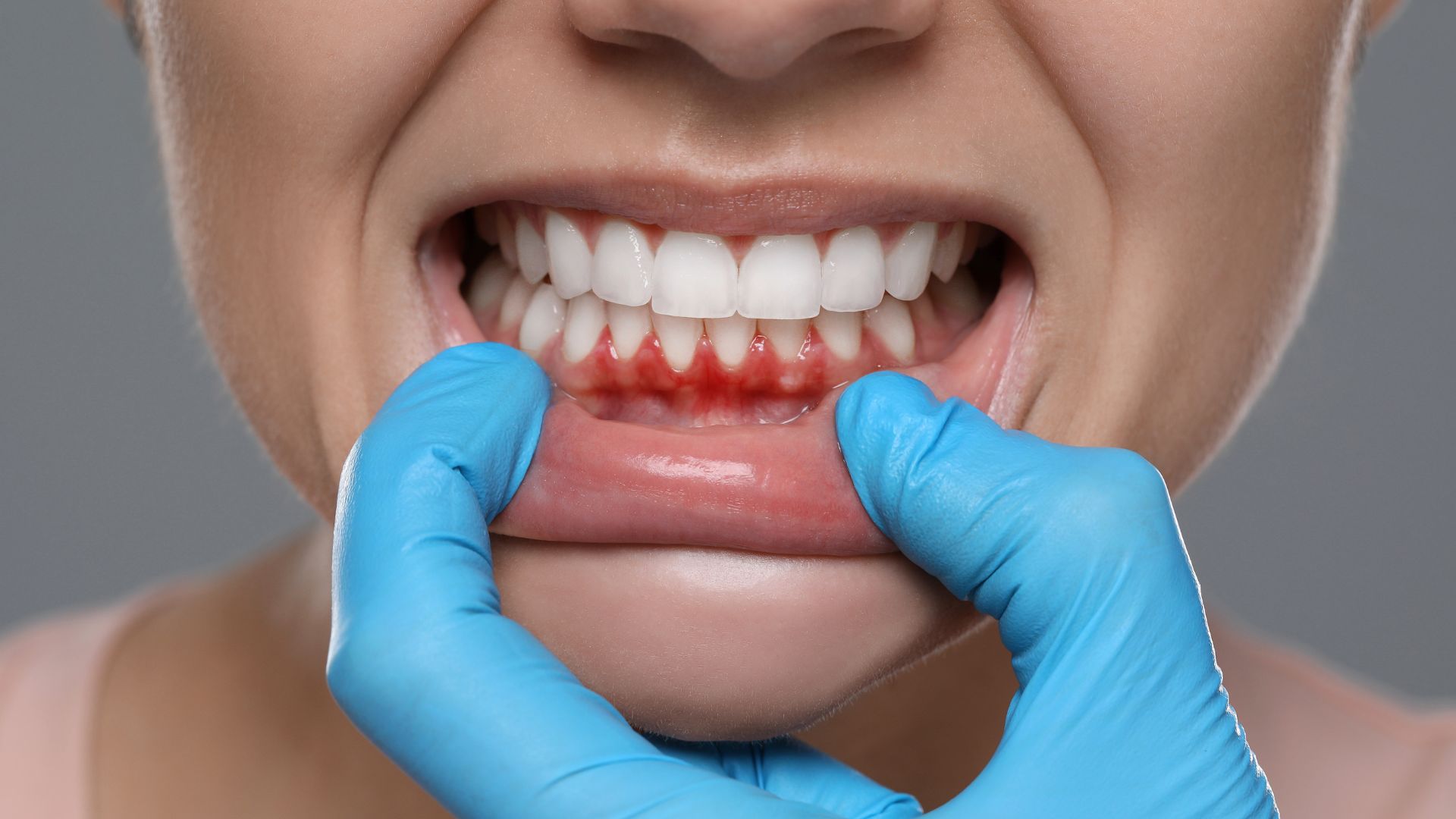You might find it surprising, but anxiety can impact your oral health, and we’re not just talking about the anxiety of visiting the dentist! General stress and anxiety can significantly affect your oral health. A strong correlation exists between stress and gum disease, which we’ll explore later. Other potential health issues include toothaches, gingival bleeding, and oral ulcers. Various factors contribute to this. We’ll discuss some leading causes and how you can combat them.
Impact of Stress and Anxiety on Oral Health
The first way stress can affect oral health is by manifesting physically. Leading neuroscientist Dr Andrew Huberman’s research delves into how stress and cortisol influence various physiological functions. This implies how stress could affect diverse health outcomes, including oral health.

Stress-induced hormonal changes, particularly in cortisol levels, are associated with saliva production, given cortisol’s known effects on bodily functions. Saliva aids in enamel protection, germ elimination and teeth and gum maintenance. Stress can also weaken the immune system, making oral tissues more prone to infections like gum disease.
Stress affects oral health internally and can lead to physical habits, such as teeth grinding or jaw clenching.
The other way stress can affect your oral health is by changing your behaviour. There is a clear relationship between stress and depression, the latter of which can make oral health harder to maintain. One study found that almost two-thirds of people diagnosed with depression report experiencing a toothache. Depression can affect executive function, making it more difficult to keep up a daily oral hygiene routine or maintain a healthy diet. These, in turn, impact your oral health.
Stress Leads to Bruxism, Gum Disease and Oral Ulcers
Let’s face it: stress is omnipresent in modern life, influencing our bodies and minds in profound ways.
Stress effects extend beyond the psychological, reaching deep into physical health, particularly when it comes to our teeth. It manifests through oral conditions such as bruxism, teeth grinding, and the development of gum disease and oral ulcers, highlighting the intricate connection between mental well-being and dental health.
These conditions cause immediate discomfort and pain and pose significant risks to long-term oral health. This introduction aims to shed light on how stress impacts our oral health, from the subconscious grinding of teeth to the inflammation of gums.
Bruxism (Teeth Grinding)
Stress triggers bruxism, more commonly known as teeth grinding. It’s a subconscious response that can occur during sleep or while awake. This repetitive motion wears down tooth enamel, leading to fractures, sensitivity, and even tooth loss.
Additionally, bruxism can strain jaw muscles, causing discomfort and headaches. Over time, this habit can contribute to Temporomandibular Joint Disorder (TMJ), further impacting oral health and overall well-being.
Gum Disease and Oral Ulcers
Elevated stress hormones can trigger inflammation, leading to swollen, bleeding gums — essentially gum disease. Additionally, stress can disrupt the delicate balance of oral bacteria, exacerbating infection risk. Oral ulcers, often linked to immune system dysfunction, can also flare up during periods of heightened stress.
These conditions cause discomfort and pose long-term risks to oral health, emphasising the importance of stress management.

Strategies for Managing Stress to Protect Oral Health
Two strategies can help manage stress and protect your oral health. The first is lifestyle adjustments designed to reduce overall stress. For some, that can mean exercising, as regular dopamine improves mental health. Relaxation techniques like meditation can have a similar effect. According to the Mayo Clinic, these are small measures you can take to manage the stress in your life.
The other type of strategy is improving your oral hygiene routines. No amount of exercise can supplant the need for a good daily oral hygiene routine. It may seem difficult to force yourself to brush your teeth when feeling anxious and stressed. But that’s when you need to be most intent on keeping your teeth healthy. Think of it as self-care, an opportunity to watch out for yourself. If anything, consider how better oral hygiene reduces stress in the long term as you reduce your chances of toothaches and gum disease.

Remember, these approaches are part of a broader strategy for managing stress. Their effectiveness can vary from person to person. Enhancing oral hygiene routines through daily oral hygiene and visits to your dentists if you suspect issues during times of high stress can mitigate the risk of dental issues, such as toothaches, gum disease, and teeth grinding.
Your dentist plays a crucial role in managing stress-related oral health issues by recognising the problem and providing personalised interventions.
Think of your dental health professional as an ally in improving your mental health through oral health. A better smile means less stress and less stress means bigger smiles.
At TEETH @ Tiong Bahru, regular dental check-ups allow early detection and treatment of stress-induced conditions like gum disease and oral ulcers. Our dental team can also make custom night guards to alleviate bruxism, jaw-clenching symptoms, and discomfort.
If you suspect your stress is leading to issues with your teeth, gums or grinding at night, schedule a consultation with our dental surgeon or oral hygienist today.

